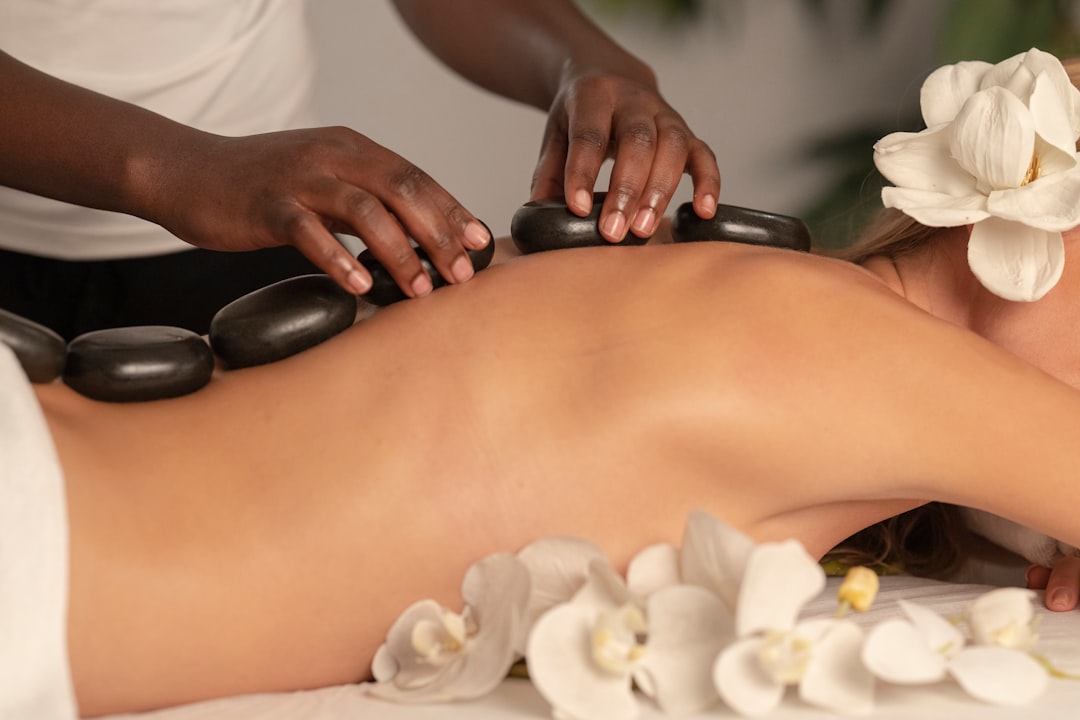Cranston, RI spa owners have a legal duty to prioritize client safety in massage therapy services. This includes background checks on therapists, verifying qualifications and licenses, and establishing clear policies for employee conduct, client consent, and incident reporting. Staying updated on local laws and consulting massage abuse attorneys in Rhode Island is crucial for compliance, risk mitigation, and business protection. Adequate insurance coverage for liability and professional services is also essential to safeguard against lawsuits related to massage abuse. Proactive complaint handling, training, and clear consent forms further protect spas and clients.
In Cranston, spa owners face unique legal challenges when hiring therapists. This guide navigates the crucial legal considerations designed to protect clients from potential risks, including massage abuse. From understanding your obligations as a spa owner in Rhode Island to ensuring qualified therapists and adequate insurance coverage, these steps are essential. Learn about background checks, licensing requirements, and how to handle client complaints effectively. With these measures, spas can foster a safe environment while avoiding legal pitfalls, with the help of experienced massage abuse attorneys in Rhode Island.
Understanding Legal Obligations for Spa Owners in Cranston

In Cranston, spa owners have a legal responsibility to ensure the safety and well-being of their clients. This includes understanding and adhering to regulations that govern hiring practices for therapists, particularly when it comes to preventing massage abuse. Rhode Island laws protect individuals from professional misconduct, including sexual harassment or assault during therapeutic services. Spa owners must conduct thorough background checks on prospective therapists, verify their qualifications, and ensure they are licensed and insured.
By complying with these legal obligations, spa owners can mitigate risks and maintain a professional environment. It’s crucial to have clear policies in place regarding employee conduct, consent forms for clients, and protocols for handling complaints or incidents. Additionally, staying informed about local laws and seeking guidance from reputable massage abuse attorneys in Rhode Island can help business owners navigate potential legal challenges and foster a secure space for clients to relax and rejuvenate.
Background Checks: Protecting Your Clients from Massage Abuse

Background checks are a vital component in safeguarding your clients and spa’s reputation from potential massage abuse. As a spa owner in Cranston, it’s crucial to understand that hiring therapists who have undergone thorough screening processes can significantly reduce the risk of malpractice, assault, or other unethical behaviors. These checks ensure that you employ qualified professionals with a clear history, allowing for a safe and relaxing environment for your clients.
In Rhode Island, where massage abuse attorneys are readily available, conducting comprehensive background investigations should be a priority. This includes verifying certifications, licenses, and training credentials. Moreover, criminal records checks, previous employer references, and personal character assessments can reveal any red flags that may indicate future misconduct. By implementing robust screening procedures, spas can protect their clients, maintain professional standards, and foster trust within the community.
Licensing and Qualifications: Ensuring Skilled Therapists in Rhode Island

In Rhode Island, spa owners have a legal obligation to ensure that all therapists on their staff hold valid licenses and meet specific qualification standards. This is crucial in maintaining high-quality care for clients and mitigating potential risks, including massage abuse allegations. Therapists must be licensed by the Rhode Island Board of Massage Therapy, which requires completing an approved training program and passing a comprehensive examination.
Additionally, therapists should possess relevant certifications and ongoing education to stay current with industry best practices. By verifying these credentials, spa owners can defend against claims of negligence or malpractice. In cases of suspected massage abuse, having thorough records of each therapist’s qualifications can serve as valuable evidence. It is also advisable for spas to have a clear policy regarding client consent, documentation of treatments, and reporting procedures for any unauthorized or inappropriate behavior—a proactive approach that benefits both the business and its clients by fostering a safe environment and protecting against legal issues involving massage abuse attorneys in Rhode Island.
Insurance Requirements for Spa Businesses and Therapists

Spa owners in Cranston must be vigilant about understanding the legal responsibilities involved in hiring therapists, particularly regarding insurance requirements to mitigate potential risks and protect their businesses from lawsuits, including those related to massage abuse. As per Rhode Island laws, spas are required to carry liability insurance that covers both general operations and professional services, with specific attention to any malpractice or negligence claims resulting from therapeutic treatments.
Therapists themselves must also have professional liability insurance—often referred to as errors and omissions (E&O) coverage—to safeguard against claims of negligence or malpractice. This is crucial given the intimate nature of spa services, where clients trust therapists with their well-being. In the event of massage abuse, having adequate insurance can significantly reduce financial burdens and legal repercussions for both spas and therapists, ensuring they are equipped to handle any unforeseen issues effectively. Consulting with a legal professional specializing in spa regulations and employment law, especially regarding Rhode Island’s landscape, is advisable to ensure full compliance and protect the interests of all parties involved.
Handling Client Complaints and Potential Lawsuits

Client complaints and potential lawsuits are serious matters that spas in Cranston must address proactively. As establishments that prioritize client well-being, it’s crucial to have robust processes for handling grievances. This includes prompt acknowledgment of concerns, thorough investigations, and fair resolutions. Training therapists on proper communication and de-escalation techniques can prevent minor issues from escalating.
In the event of legal action, especially allegations of massage abuse, spas must rely on expert advice from Rhode Island massage abuse attorneys. Proactive measures include maintaining detailed records, ensuring compliance with local regulations, and providing clear consent forms to clients. A strong legal defense strategy, combined with transparent practices, can protect the spa’s reputation and minimize financial exposure.






